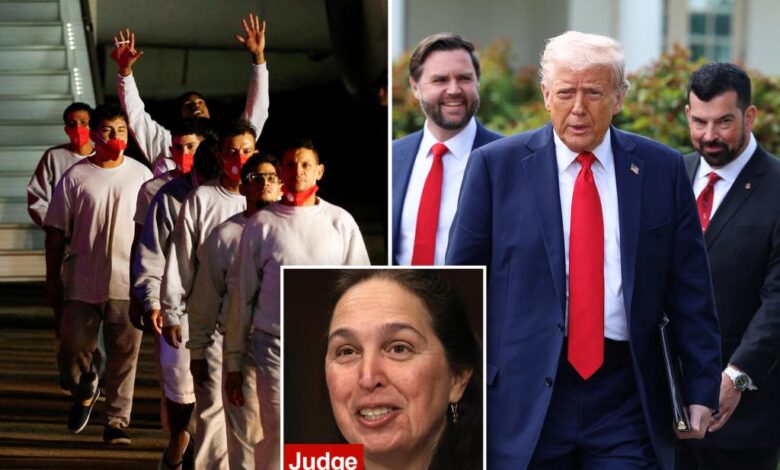Judge blocks Trump from revoking legal status for 530,000+ migrants who flew into US via Biden program

A federal judge has issued a ruling that blocks the Trump administration from revoking the legal status and work permits of over 530,000 migrants from Cuba, Haiti, Nicaragua, and Venezuela who arrived in the United States during former President Joe Biden’s tenure. These migrants entered the US under Biden’s CHNV mass humanitarian parole program, which was met with controversy.
Judge Indira Talwani, an Obama appointee, ordered that each migrant must undergo an individualized, case-by-case review before any decisions are made regarding their legal status and work permits. The termination of parole processes for these migrants has been stayed pending further court orders, preventing the immediate revocation of their parole and work authorization.
The CHNV program was established by Biden in 2023 through his executive parole authority, initially applying to Venezuelans before being expanded to include individuals from additional countries. The program aimed to reduce illegal border crossings and enhance the vetting process for migrants entering the country amidst a surge in immigration.
However, the program was temporarily halted due to widespread fraud and instances of recipients being involved in serious crimes, such as child rapes. Despite this, the program allowed migrants and their immediate family members to enter the US with American sponsors and stay for two years under temporary immigration status known as parole.
The Department of Homeland Security and the Trump administration criticized the ruling, stating that it restricts Trump’s executive authority to revoke the parole granted by Biden. The decision has been described as “lawless tyranny” by a Trump administration official.
In March, the migrants under the CHNV program were instructed to leave the US before their humanitarian parole and work permits were set to be canceled on April 24, providing them with a month from the formal publication of the notice on March 25. The situation remains complex and subject to ongoing legal battles and developments.
The ruling by Judge Talwani underscores the challenges and controversies surrounding immigration policies and programs in the United States. The fate of these migrants and the future of the CHNV program remain uncertain as the legal process unfolds.





